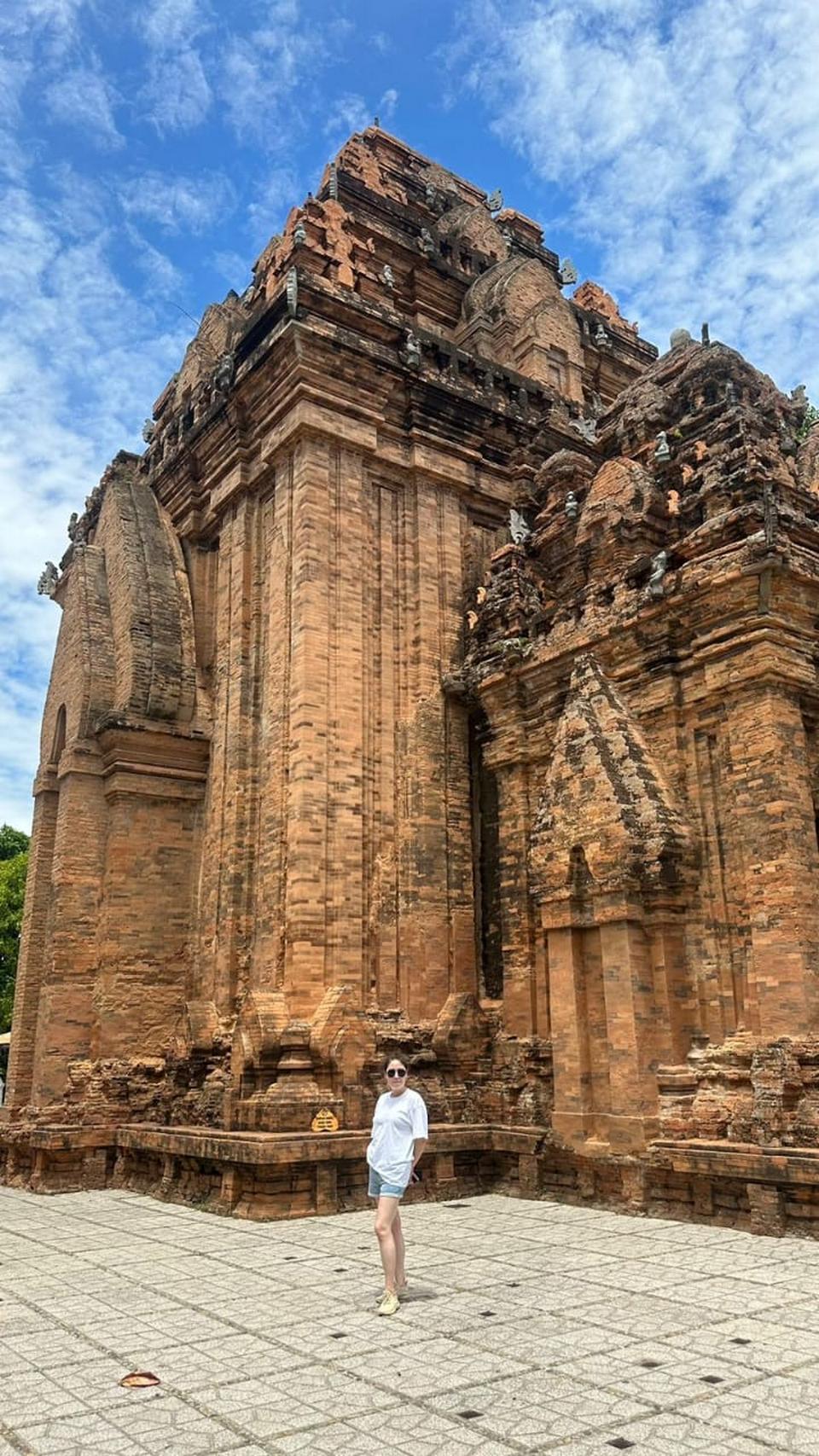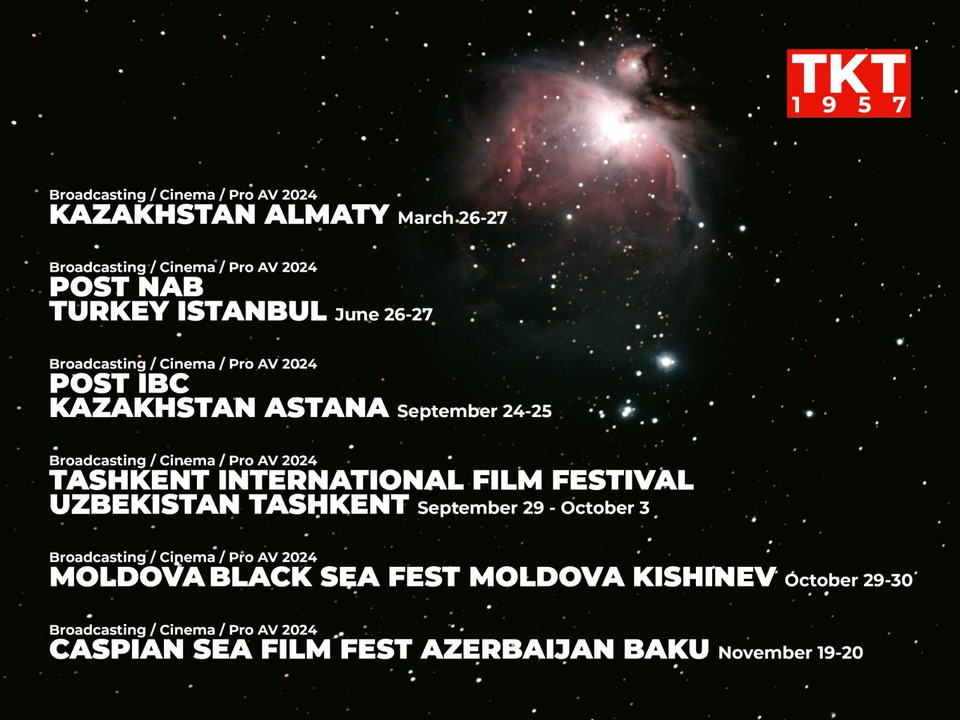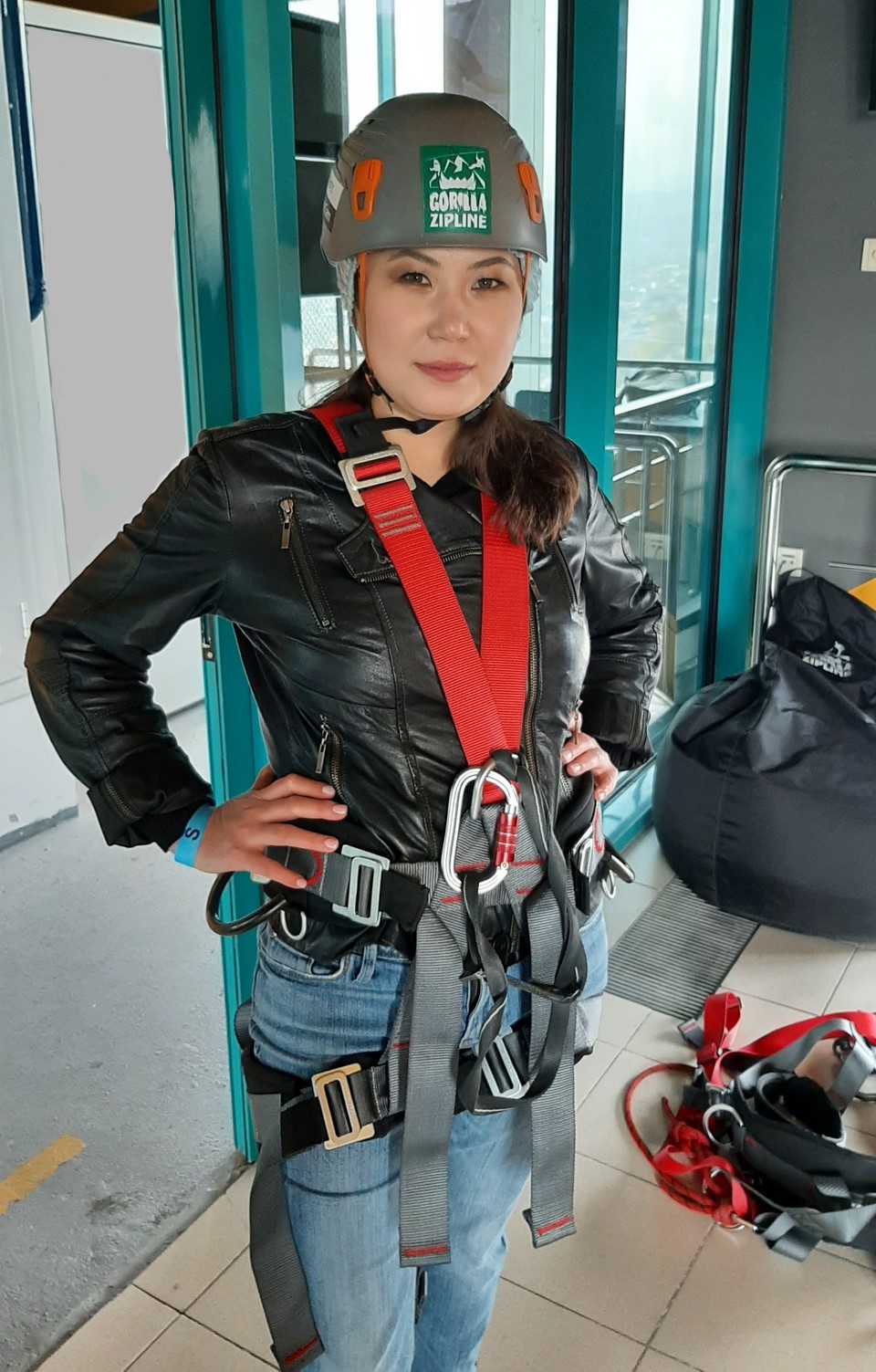
Interview with Alua Robert, head of the MKV and communication department of the «Managing Company «Kazmedia Ortalygy», Kazakhstan.
—What does your name mean?
The name Alua means «sweetness» in Arabic, and in Kazakh, it has several meanings. One of them is associated with the concept of «blessing» or «prosperity». The name Alua can also be associated with the concept of «bright light» or «sunflower». Thus, my name symbolizes happiness, prosperity, and a bright nature.
—Is Robert your maiden name?
Yes, it’s my maiden name, that’s what my dad is called. Among Kazakhs, it is customary for a child to take either the father’s or grandfather’s name.

—Where were you born, and what kind of family did you grow up in? What did your parents do?
I was born in Almaty, in a beautiful and unusual city. My father is a lawyer, he practices law and mediation, he was born in the city of Astrakhan and studied in Almaty.
My mother is a native of Almaty. She has a historical education, and as a second one, she is also a lawyer. For a long time, she worked in a bank, and after the birth of my younger sister, she became a housewife.
Most of my childhood I spent with my grandmother, my parents were very young, I was what you might call a «student child». My grandmother was a teacher of Russian language and literature at the university.
How is my family different from others? In fact, upbringing was based on complete freedom. The only requirement was to study well – to understand, not to strive for grades, and to read a lot. There were no restrictions in other areas.
Classical education – foreign languages, music school, classical literature.
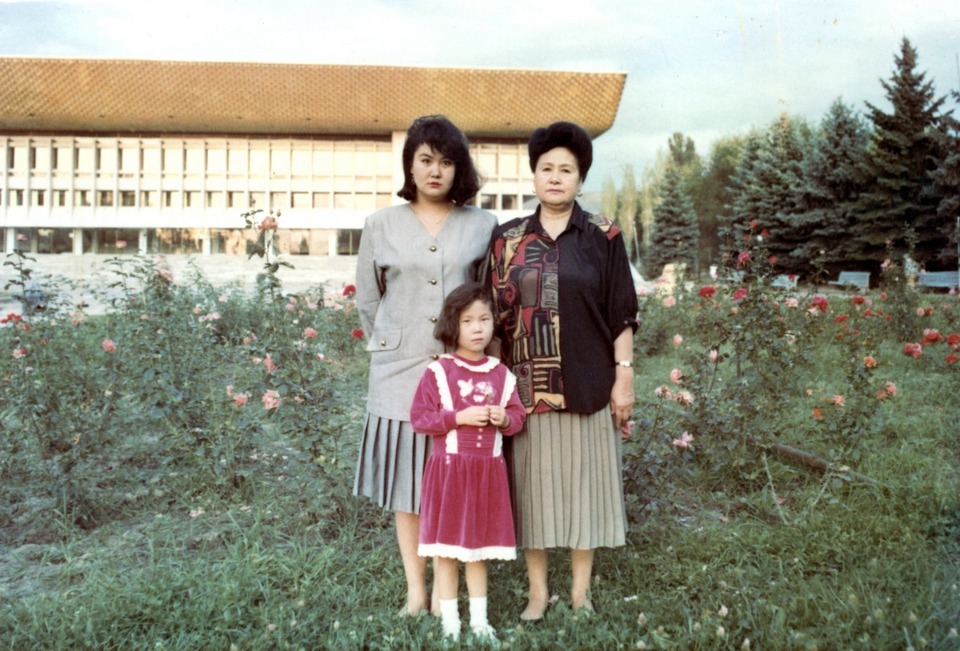
— What foreign languages did you study?
I’ve always studied English, two years each of French and German. In the future, I plan to learn another language, maybe several.
— Where did you study?
From 1st to 7th grade – at Technical Lyceum No. 28 in the center of Almaty. In the eighth grade, I entered the Republican Physics and Mathematics School. I graduated and then entered university.
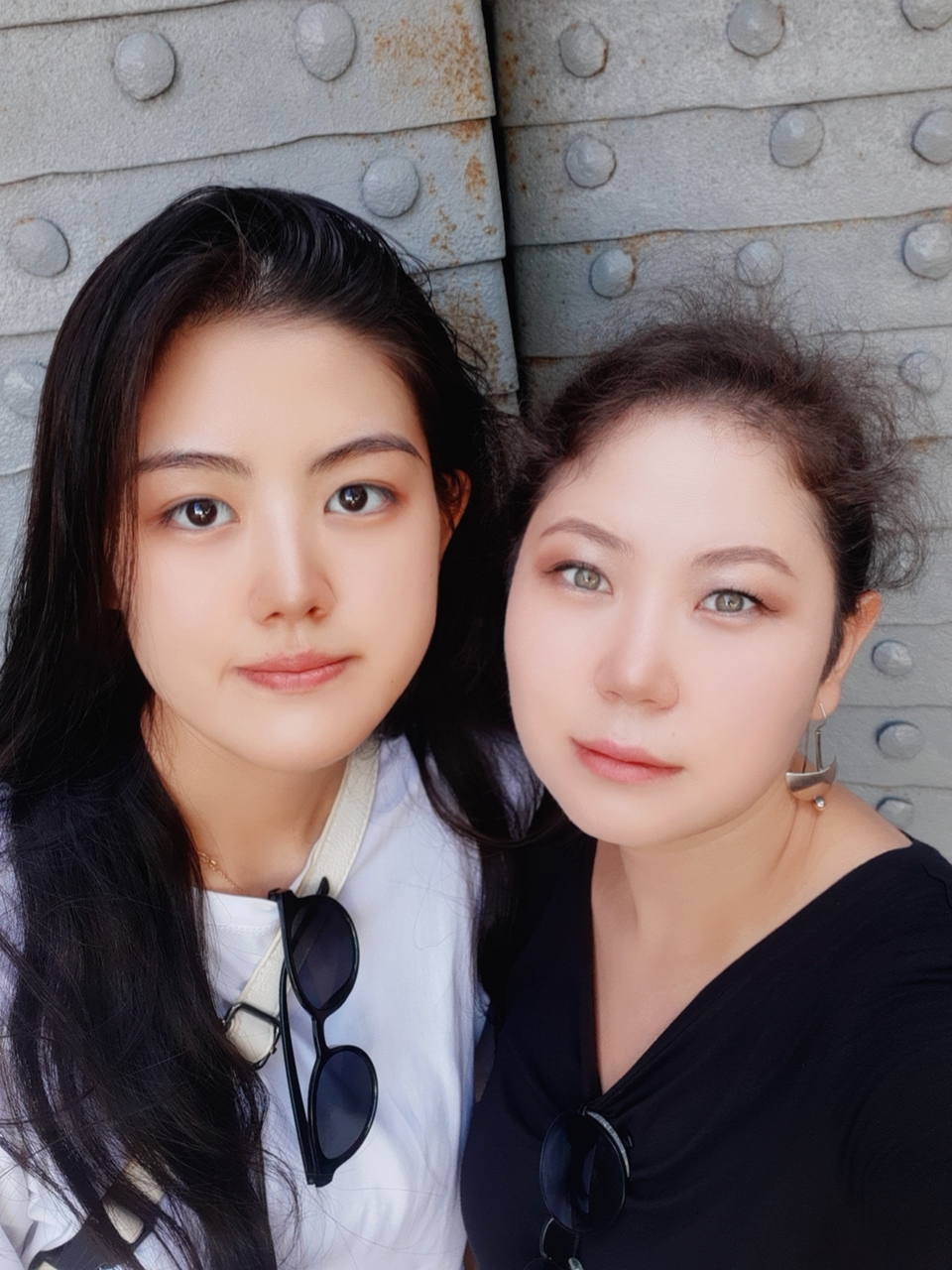
— Which subjects did you like in school?
My favorite subject was history, while physics and mathematics came naturally to me.
— How did it happen that everyone around you focused on humanities, but you were directed towards a technical direction?
Since childhood, from the age of three, I learned to count and solve problems before learning to read.
— Were you active in school?
I was never an initiator, but if asked, I would participate and take part.
— Your life was clearly enriched. What extracurricular activities did you attend besides school?
In elementary school, I attended sports gymnastics. Also, from first to seventh grade, I attended a music school, piano class. It wasn’t just about the specialty. We learned everything completely: music history, music literature, solfeggio. In school, there was the first shift, and the second shift was at the music school, and it was like this every day.
Then languages. Also, my family demanded that we read a lot — at least one book per week. A person should be versatile, learn, and play a musical instrument. My uncles, my mother’s brothers, were very musical; in their youth, they sang in an ensemble, covered The Beatles songs, played the guitar; my grandmother sang beautifully, my grandfather played the dombra, music was always around our family.
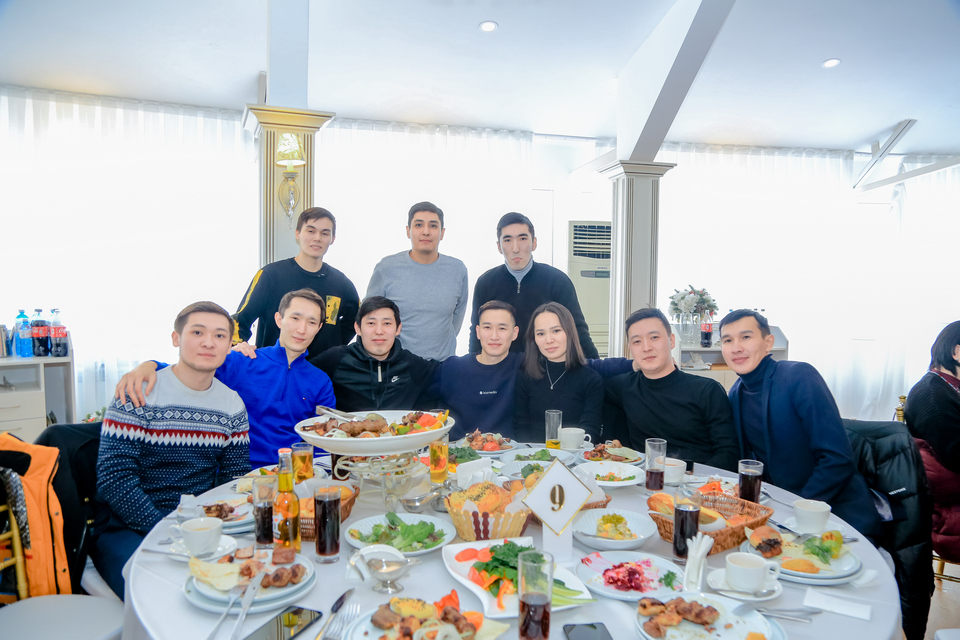
— How did you finish school? Where did you go afterwards?
I graduated from school well, then I took a long time to decide where to go next. On the last day of the admissions office’s work, I submitted my documents to the Almaty University of Energy and Communications. I just walked into the building, and I liked the atmosphere of the educational institution, everything was neat, clean, bright, and smelled of fresh paint.
— Which faculty did you choose?
I chose the Faculty of Radio Engineering, Communications, and Telecommunications. I graduated with a degree in «Radio Engineering».
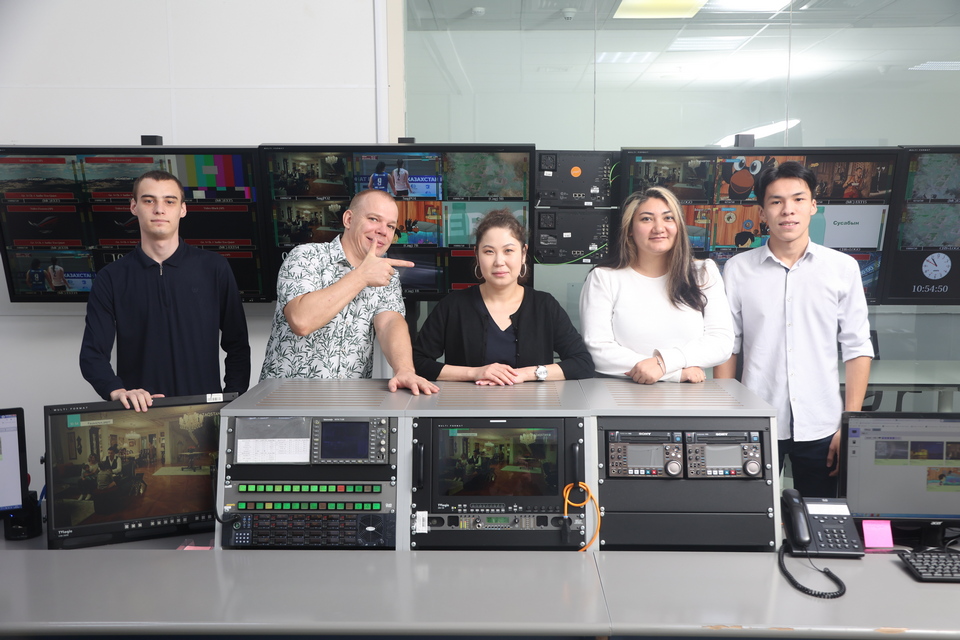
— How did it happen?
I asked questions to the admissions committee. I asked about the faculty and where I could work after completing my studies. One girl advised me to study communications, as mobile phones had just started appearing, and you could work both at the Baikonur Cosmodrome and for mobile operators. It was a field that would always be developing, and I listened and thought it was interesting, so I stayed.
— Were there other girls in the faculty besides you?
Yes, there were 28 people in the group, including five girls.
— Did you enjoy studying?
Yes, I did, I caught myself thinking that I enjoyed it. The university was tough, one of the toughest. We studied day and night, coming to classes at eight and staying until six or seven in the evening because we were in the libraries, reading, writing. Although I caught the tail end of the bachelor’s program, we studied for only four years but were only the second cohort, so we studied according to a five-year program compressed into four years.
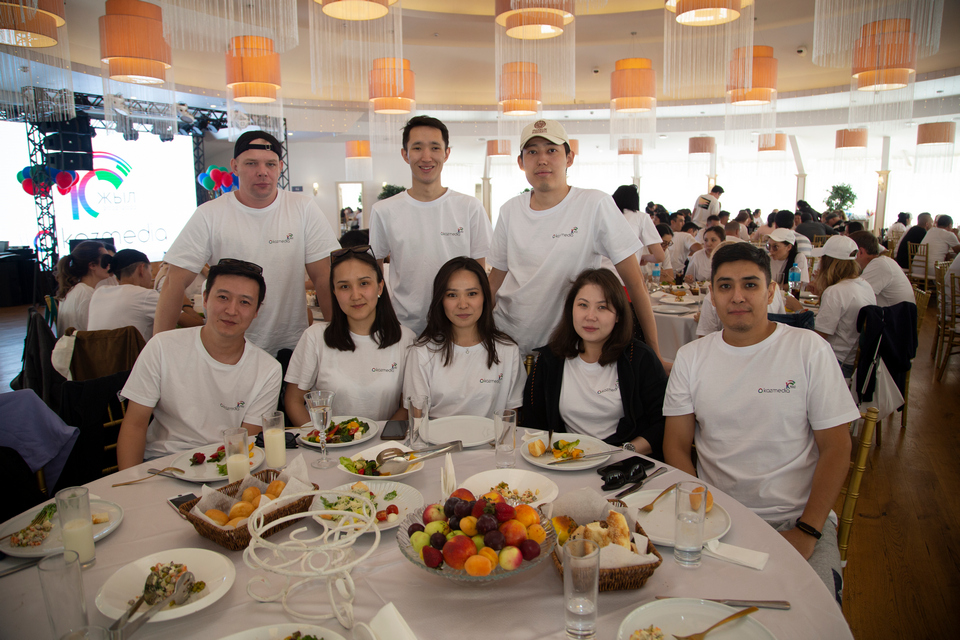
— When and where was your first internship?
My first internship was at the office of a major mobile operator. In reality, it didn’t show what I would be doing, and until the fourth year, I didn’t understand what I would be doing. In the fourth year, we started studying more specialized subjects, and we began to understand what we would be doing depending on the field of activity. I don’t regret making this choice; the fundamental knowledge I gained helped me in the future.
— Where did you work after graduation?
I got my first job in my final year as an engineer at the central hardware office of the Tele-Radiocorporation «Kazakhstan». At that time, I was involved in video and audio signal switching, monitoring, and later in setting up satellite signal reception. It’s the television industry where I started and remained.
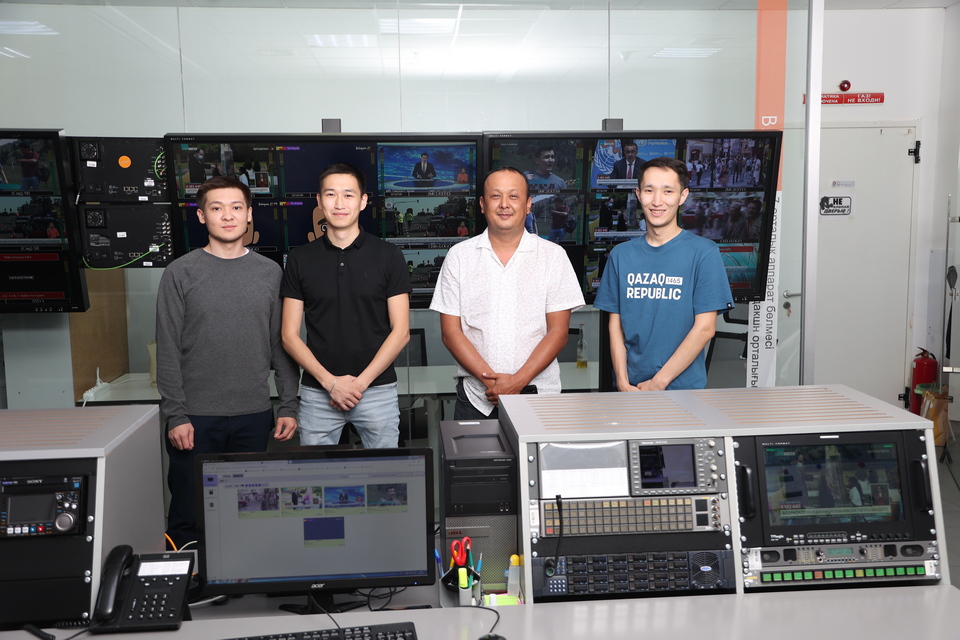
— How did you find this job?
Friends told me about the vacancy and advised me to give it a try. It was in May, and my diploma defense was in June. I went for an interview. There were no tests. They simply asked about my university, grades, and who my professors were, and they hired me on the spot. I worked there for two and a half years, and I met wonderful people. I was lucky to have fantastic colleagues at my first job!
— How were you welcomed? How did your career progress?
I was welcomed warmly in my department, where I was the second girl. They explained everything, and they even answered the silliest questions with a smile. I learned a lot from my colleagues. Within six months, I became a senior engineer, and another six months later, I moved to the broadcast hardware department, the heart of the operation, and worked there until I switched to my second job.
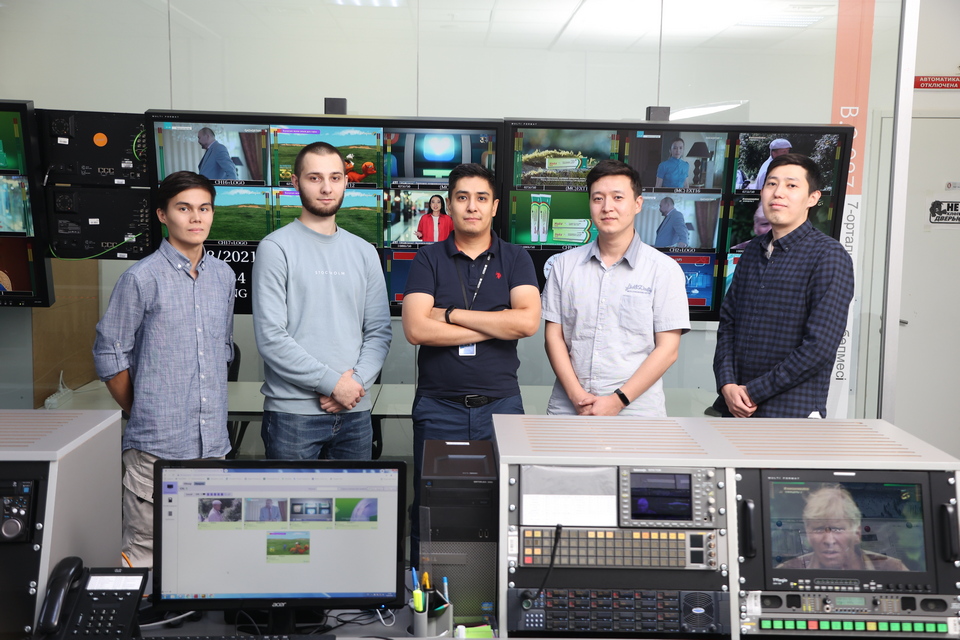
— What position did you transition to?
I started as an engineer, then progressed to a senior engineer, and finally became the head of the broadcast hardware department. It was all step by step progression.
— «Kazmedia» is opening. How did you end up there?
I was informed about the opening at work. All state channels were relocating there, and broadcasting was planned from Astana. Anyone who wanted could go. I hesitated for a long time, whether to go or not. I’m a very home-oriented person, a mama’s girl, but my mom said, «Try it, if you don’t like it, you can always come back, but you have to try, not be afraid to look, learn, and meet new people». And with my parents’ blessing, in September 2012, I went to «Kazmedia» for an interview. I underwent a week of training, and at the end, I was hired, and I’ve been working there since its inception.
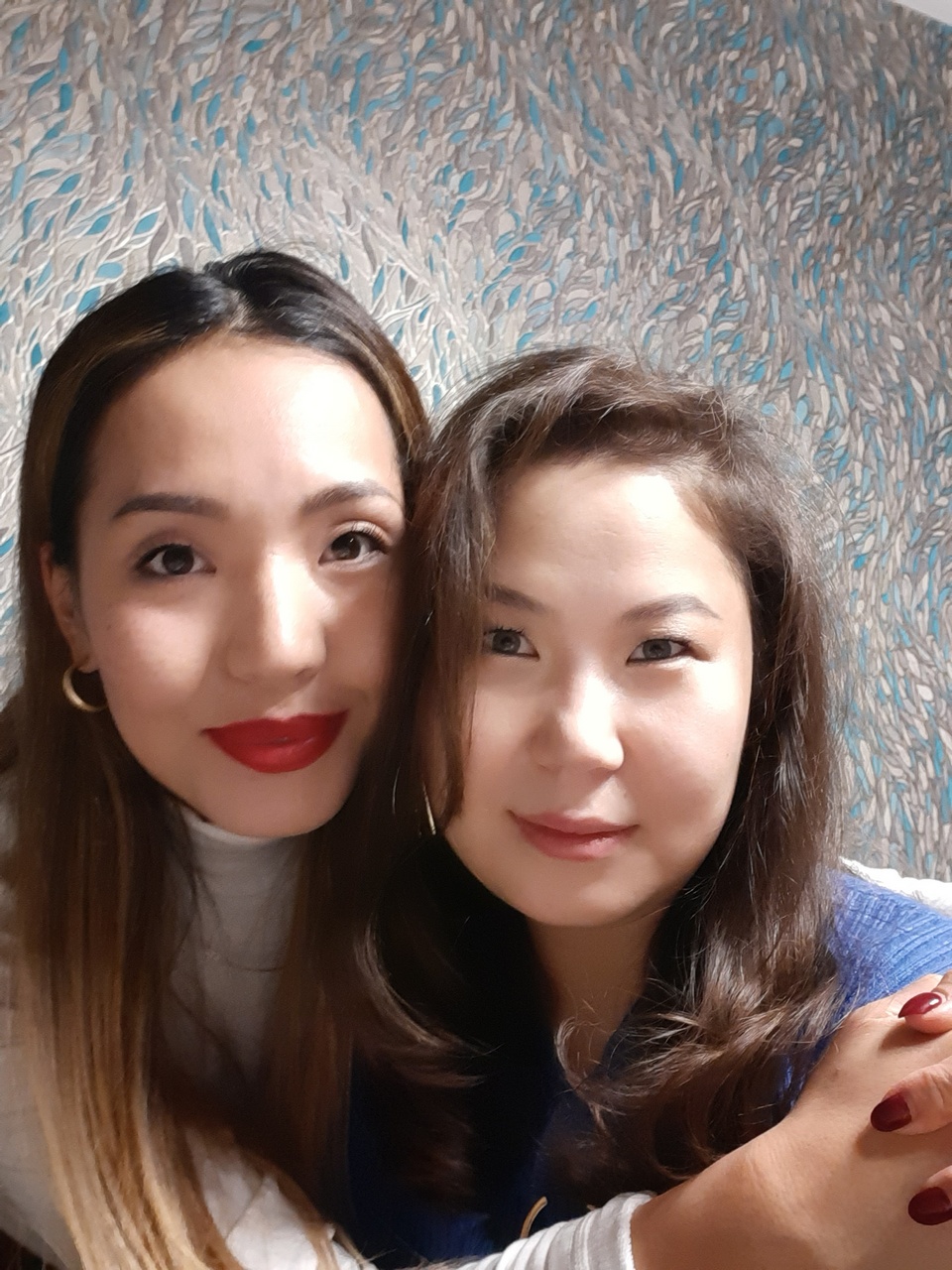
— Where did you live in the beginning?
As soon as I moved to Astana, I lived with my friend Aigerim. She was the first person to greet me and helped me adapt to the new city. From a psychological point of view, it was difficult to detach from my parents, from the familiar city, climate, water, food, people; everything was completely different. Almaty is a different city, with kind and bright people, a warm atmosphere, delicious food, tasty water, no winds, mountains, greenery…
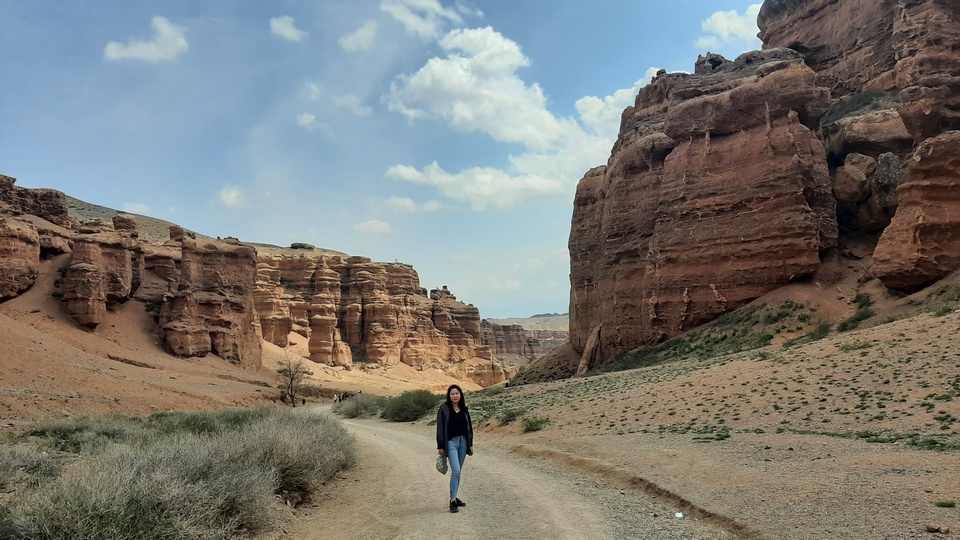
— How did your career develop in the new center?
A department was established, it was renamed several times, but it was always involved in supporting the formation of broadcast signals and switching. The switching and broadcasting center is the heart of «Kazmedia» from a technical point of view. To this day, I work in this department; I started as an engineer, temporarily became a senior engineer, and at the end of 2020, I became the head of the department.
— What was the most interesting and challenging aspect of your professional life?
When I first started working at the new «Kazmedia Center», from a technical point of view, we did a lot ourselves: reconfiguring diagrams, developing regulations and instructions. Everything that is now automated and documented, we handled ourselves, from the foundation to automation. This took the first three or four years. It was the most interesting in terms of professional growth; it gave me a lot in terms of competence.
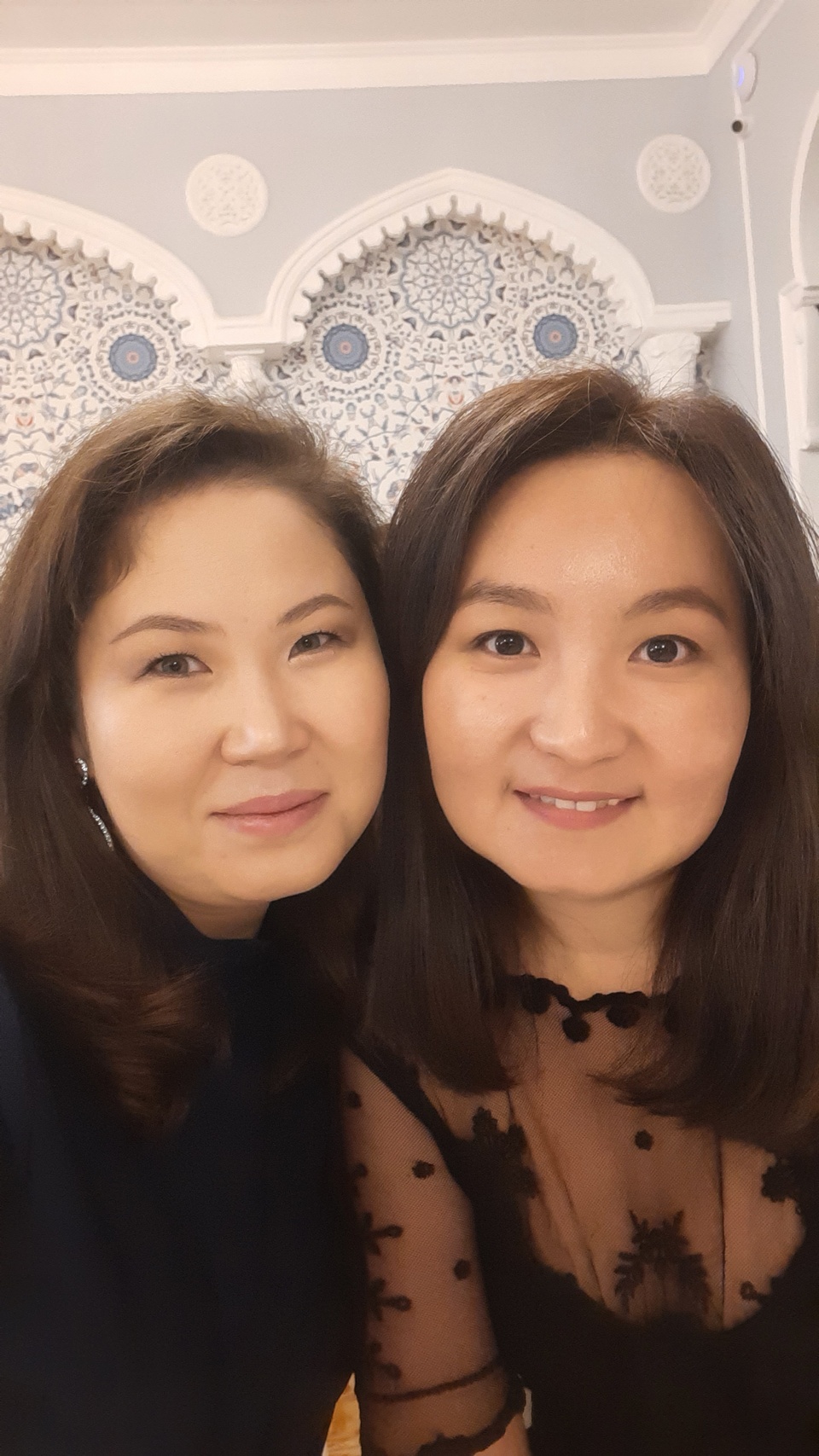
At the same time, I worked as an engineer at the «Qazsport» TV channel when it opened in July 2013. Everything was built from scratch there, setting up the studio equipment; it was always very interesting.
— What main achievement in your professional career can you highlight?
My work experience allows me not to fear the future. I know that wherever I am, whatever happens, I will always handle it.
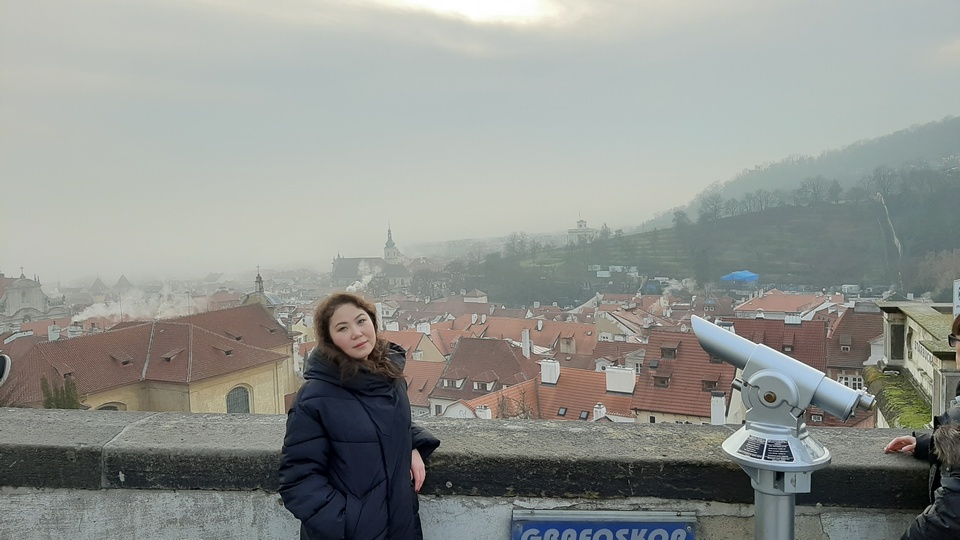
— As a leader, how do you train your specialists and continue your own education?
I managed to complete my master’s degree and obtain a second higher education in finance.
I try to maintain my English language skills. The incoming younger generation sees this. The people in my department are very intelligent. Everyone has a master’s degree, English language proficiency, and all innovations come from abroad in English. I try to speak English, practice with them, and share links about something new.
